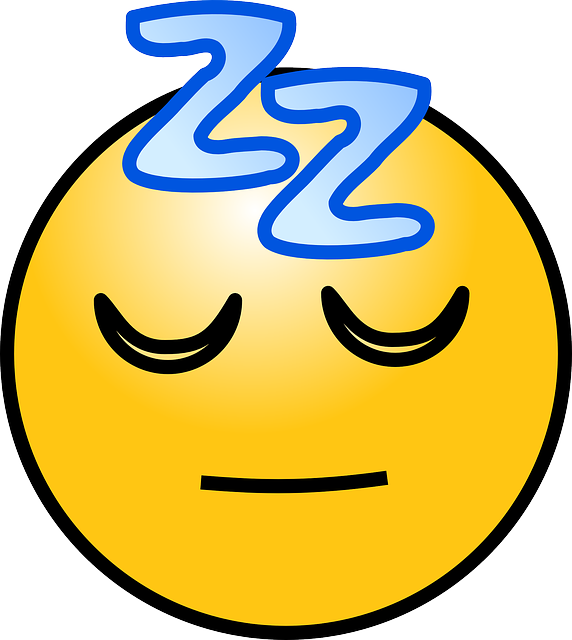
When you end up in a hospital, do you stop to wonder how much sleep your attending physician got last night? Your life is in their hands and you would like them to have their wits about them. I mean, if they were obviously drunk, would you let them make life and death decisions for you? I think you might have a problem with that. Yet are you aware that functioning on only five to six hours of sleep leaves you functioning as well, cognitively, as someone who is drunk? You don’t see the staggering or smell the alcohol on their breath, but the impact on their ability to think and problem solve is the same. And yet it is common for hospitals to schedule their doctors to work 24-hour shifts.
How about that truck driver in the lane next to you that got to bed at midnight and had to be back at work by 6 am the next morning for an early load? At best he has had maybe 5 hours of sleep. Yet we want to believe that he or she is safe on the road. This is common in the trucking industry.

Lack of sleep makes you stupid. It slows your reaction times. It interferes with your ability to form memories, process information, and act rationally. Sleep deprivation amps up your emotions by making you more reactive, experience more fear and more anger. And these are just the cognitive effects. The physical impact on the body is immense. Getting only 6 hours of sleep per night triples your risk of high blood pressure and doubles your chances of having a heart attack. Poor sleep shuts down your immune system, messes up your metabolism, and sets you up for such lovely diseases as diabetes, cancer, and Alzheimer’s. A lack of sleep will even make you fat.
Now here is the scary part – at any one moment it is estimated that 40% of Americans are sleep deprived. That means that two of the five cars around you on the freeway have people driving them that are functionally drunk without ever having taken a drink. Or worse, you might be one of those two out of five people.
The average person needs 8 to 9 hours of sleep every night to be functioning at their best. Some people do ok with only 7 hours and others need 10 or 11 hours to function well. But everyone needs more than 6 hours. Part of the problem is that, just like the drunk person, when our thinking ability is compromised by a lack of sleep, our ability to be aware that we are compromised is lost. We think we are normal, but we are not. We are operating at a diminished capacity. Our reactions are slowed and our thinking is less perceptive and more reactively emotional.
Why is sleep so important?

Lots of stuff is happening while we are asleep. While we are awake the brain is working at a furious pace thinking, imagining, planning, feeling, learning, and so on. This pace produces a lot of garbage in the brain – literally scrap materials. Like a busy woodworking shop or craft studio, the process of creating and working produces unwanted trash in the form of clumps of proteins and reactive waste products. When we sleep, the brain slows down and the cleanup crew comes in to take out the trash to get us ready for the new day. If we don’t get enough sleep, the brain never gets cleaned out and the trash starts building up. Before long, the trash starts compromising the function of the brain. Alzheimer’s is an example of too much trash in the brain; it’s usually 20 years worth of trash before the diagnosis is made. Every year of that 20 years the brain was functioning a little worse each day.
Sleep time is when the brain takes the memories and learning from the day and encodes them for long term memory. If you are not getting enough sleep, you don’t form the solid long-term memories that create your history. How well do you remember last week or last month? Can you recall the details of your life? If not, lack of sleep may be the problem.

One reason we may not be getting the restful and restorative sleep we need is not surprising. It’s (drum roll please) … our lifestyle. One major factor affecting our sleep has to do with the time of day we choose to sleep relative to actual daylight hours. Other factors include the time of day we eat, our level of stress and the use of artificial lighting – especially from computers.
Our body was designed to get up with the sun and go to bed when the sun goes down. This natural rhythm is built into our brain in the pineal gland. This gland registers the amount of sunlight we are seeing and controls the output of the sleep hormone Melatonin. This gland is especially sensitive to the wavelengths of light at the higher end of the spectrum; the blue colors. It tends to ignore the deep reds and oranges, like in a sunset or the colors given off by a campfire. The blue light tells the pineal gland that it is time to wake up and get busy. Artificial lighting, especially that coming from a computer is high in the blue end of the spectrum. When we look at computer screens and similar devices late at night, our production of the sleep hormone gets delayed by several hours making it harder for us to get a full restful night’s sleep.
Stress is an obvious cause of poor sleep, so it is vital for us to de-stress during each day. Physical exercise is one of the most reliable methods of de-stressing as long as we don’t over train. Meditation, yoga, positive family and friend time, dancing, singing, and quite-alone-time are all good at helping us reduce the stress from the day. Unfortunately activities like watching television and cruising the internet do not lower our stress levels.

Meal timing is an interesting tool for setting our sleep-wake cycle. A lot of research is being done in this area, but unfortunately most of it is being done on mice, not humans. Mice are naturally nocturnal so the results may not apply to us. But the main finding from this research is that our main or largest meal of the day is best eaten mid-day and not late at night. I would say to experiment for yourself to see if shifting your meal timing around changes your sleep quality.
The big point here is that sleep is vital to health for everyone. We all need 7 to 9 hours of restful sleep each night. There is no such thing as being able to learn how to function without enough sleep, it only seems that way because our ability to discern how well we are functioning becomes impaired. Seriously, not enough sleep sets you up for early brain degeneration and lots of nasty diseases. So get a good night’s sleep. It is important  enough to make sleep a priority over the things that might currently be keeping you from getting the sleep you need.
enough to make sleep a priority over the things that might currently be keeping you from getting the sleep you need.
